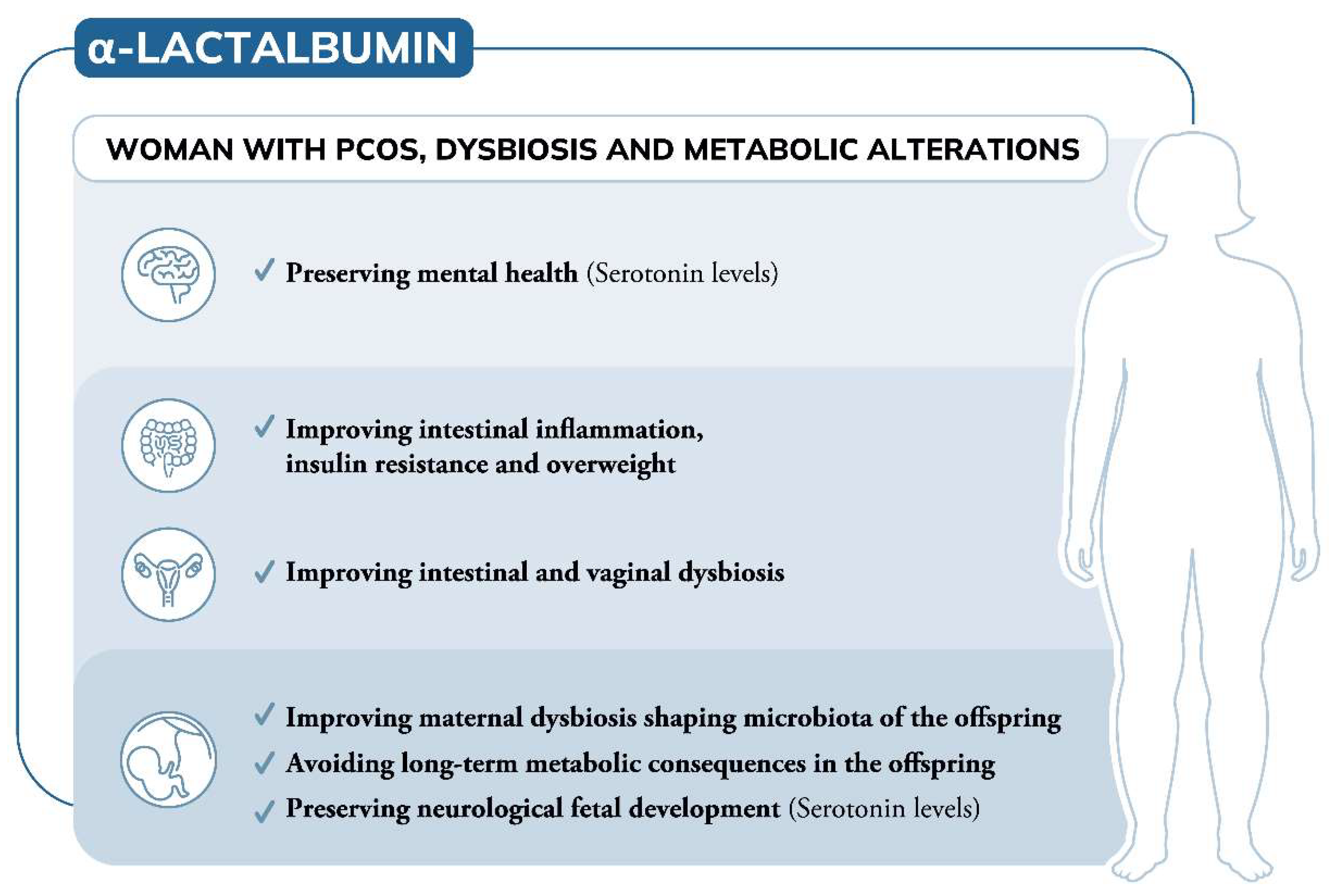Polycystic ovary syndrome (PCOS) increases type 2 diabetes and non-alcoholic fatty liver disease (NAFLD) with insulin resistance. We hypothesized that a 35 g whey preload would improve insulin sensitivity and glucose handling while reducing biomarkers associated with NAFLD.
Twenty-nine age-matched women (CON = 15, PCOS = 14) completed oral glycemic tolerance tests following baseline (Day 0) as well as an acute (Day 1) and short-term whey supplementation (Day 7). Whey had an interaction effect on glucose (p = 0.02) and insulin (p = 0.03), with glucose remaining stable and insulin increasing with whey supplementation.
Insulin sensitivity (p < 0.01) improved with whey associated with increased glucagon secretion (p < 0.01). Alanine aminotransferase (ALT), and aspartate aminotransferase (AST) remained unchanged, but “day” had an effect on the AST:ALT ratio (p = 0.04), whereas triglycerides and sex hormone binding globulin overall were greater in the PCOS group (p < 0.05). Total cholesterol decreased in PCOS (by 13%) and CON (by 8%) (NS). HepG2 cells treated with plasma from participants before and after whey decreased lipid accumulation in the PCOS group after whey (p < 0.05).
Whey provided an insulinogenic and glycemic homeostatic effect in women with PCOS with the potential to combat NAFLD-consequences.






